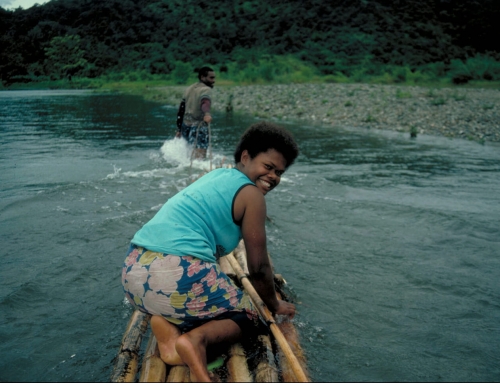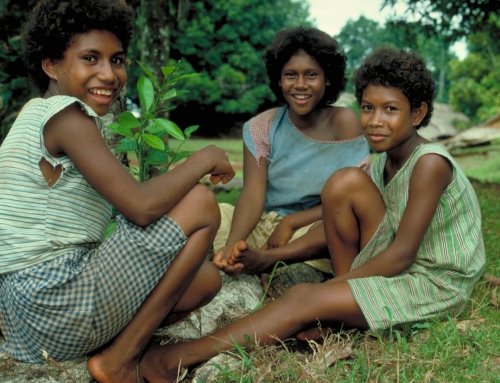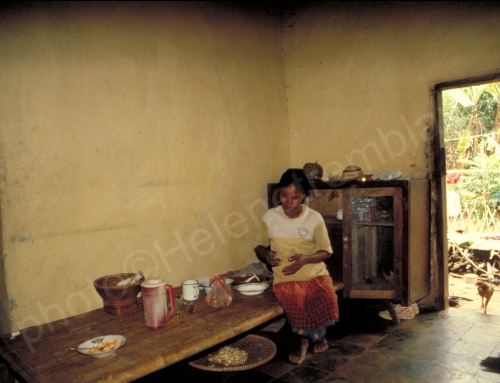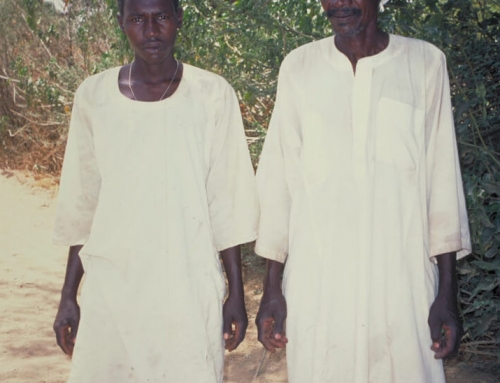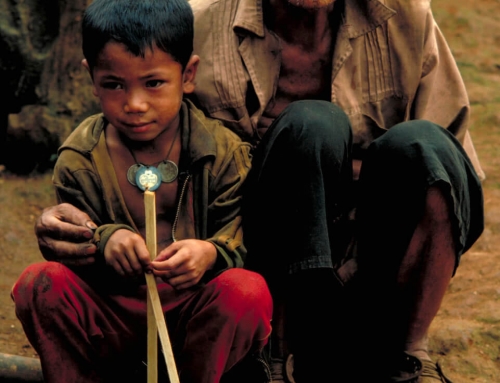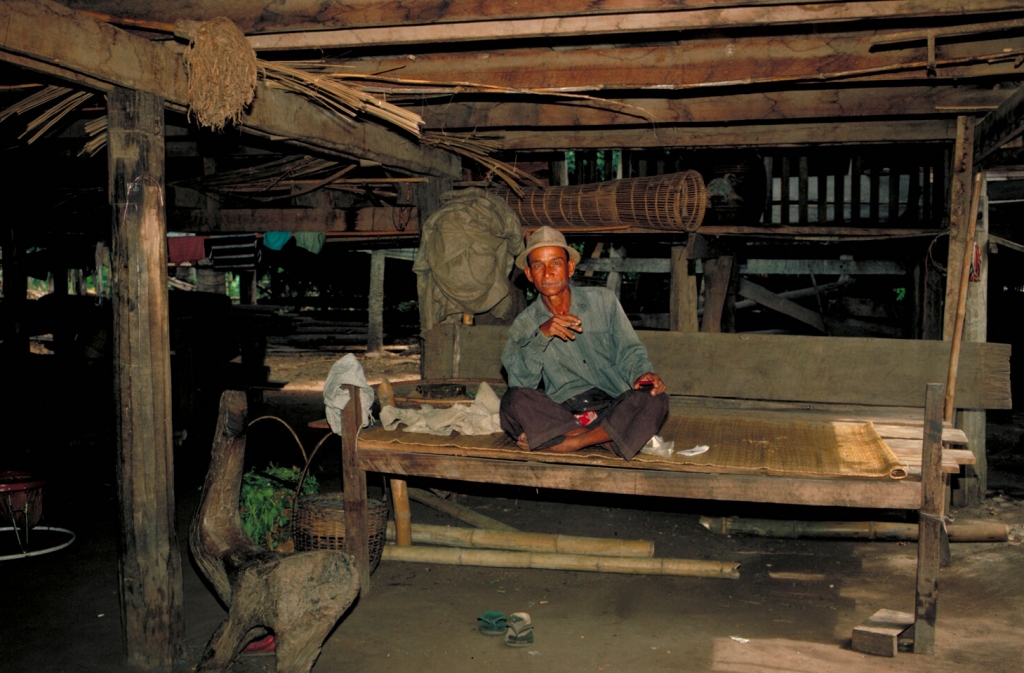
“I thought when I was very young that land was the best thing I could buy,”
5:30 Taptim’s husband starts the first of many trips to the small river nearby to fill up the cement cistern in the backyard bathing and latrine shed. One year from now, Soan expects to be able to afford running water. Clouds begin to hide what little blue sky there was to see. The rain they will bring is welcome in this part of the country, where peasants have no irrigation systems. “Unlike the past two years, this year there will be a good harvest and profits for all,” say Taptim and Get. However, the family will have to work hard for any profit. Soan owns 70 rai (1 rai= 1,600 square metres), three times what most peasants are able to rent from the country’s rich landlords, who continue to buy more and more land as peasants move to the cities. Soan decided to buy it 30 years ago, when 80 percent of the country’ s peasants still owned their land. “I thought when I was very young that land was the best thing I could buy,” he says, proud of his youthful decision.
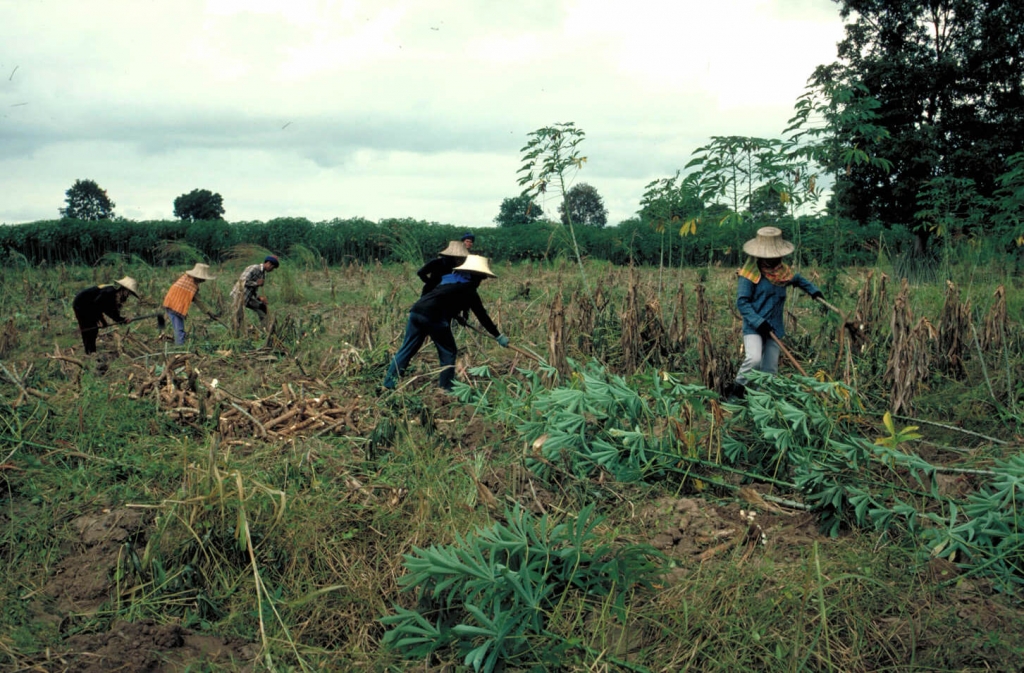
Hiring themselves as a group
Taptim and Get rush across the small family hamlet to the road to jump on the back of a farm truck already waiting for them. Other farm workers, mostly friends, cousins and brothers, have piled in. The small group has hired themselves out to harvest manioc on a larger farm, as there are still about 10 more days until the rice harvest. The truck pulls out of the quiet village, passing the monks coming with their begging bowls. As they leave the main district road and head onto dirt roads, the low red sun peers out of the clouds and intensifies the green and gold hues of the fields.

